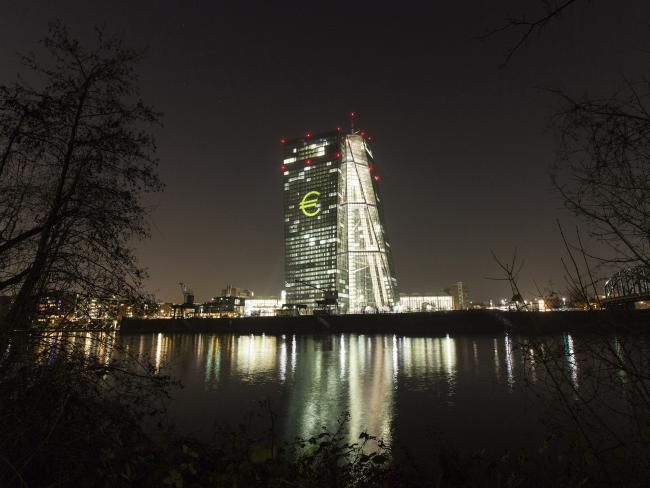(Bloomberg) -- Go inside the global economy with Stephanie Flanders in her new podcast, Stephanomics. Subscribe via Pocket Cast or iTunes.
European Central Bank policy makers agree that euro-zone economic growth has held up in line with their official forecasts despite recent weak data, according to people with knowledge of the matter.
While some Governing Council members meeting on Wednesday remained skeptical over the prospects of a pickup in the second half, the data are mixed and there was consensus that the slowdown hasn’t been worse than anticipated, said the people, who asked not to be identified because such discussions are confidential. An ECB spokesman declined to comment.
That analysis suggests the central bank may need to see a further deterioration in the euro area’s growth performance before any downgrade in its forecasts can be justified. That’s key because President Mario Draghi said on Wednesday that the forthcoming outlook will help determine how stimulative the ECB’s bank-loan program should be. The next predictions will be unveiled in June.
Policy makers often wait for their quarterly forecasting rounds before delivering major monetary decisions. The most recent outlook, in March, anticipated growth of 1.1 percent this year and 1.6 percent in 2020.
“The information that has become available since the last Governing Council meeting in early March confirms slower growth momentum extending into the current year,” Draghi told reporters in Frankfurt. “The risks surrounding the euro-area growth outlook remain tilted to the downside, on account of the persistence of uncertainties related to geopolitical factors, the threat of protectionism and vulnerabilities in emerging markets.”
Draghi also reiterated his previous comments that the ECB might need to soften the impact of its negative interest rates. Governors exchanged views on the effects of the policy at their meeting but without settling on a position, the people said.
